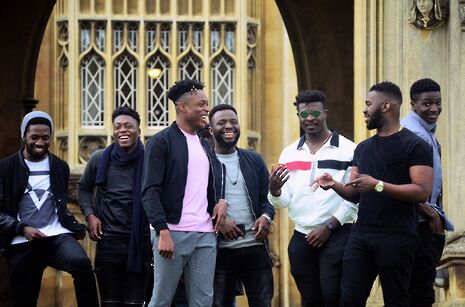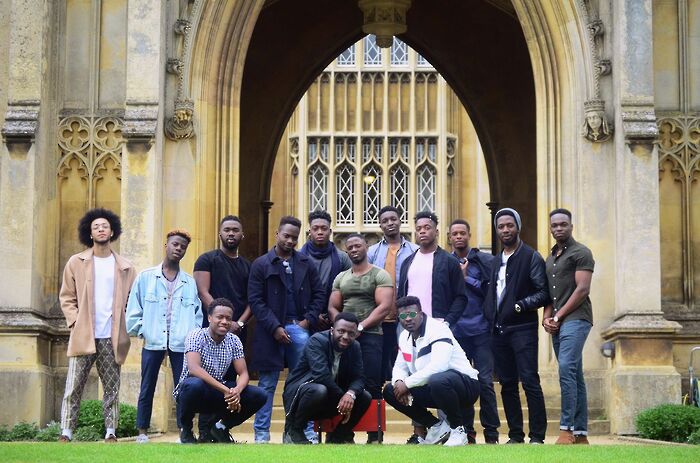University pledges to increase student diversity – but still does not set targets
New access agreement includes commitment to outreach work with underrepresented ethnic groups, but not what form it is likely to take

Cambridge’s new agreement with the Office of Fair Access (OFFA), published last month, contains a pledge to begin new outreach work “to engage specific minority groups” – but no information on what this will entail.
This is the clearest commitment the University has made thus far to addressing the lack of representation of certain ethnic groups within the student body. Though there is no mention of specific groups within the agreement, it is likely to include black students, which the University accepts at a proportion around a seventh of the national average.
The University has long upheld a policy of making grade attainment the crucial determinate factor in admissions – a policy which significantly lowers the proportion of eligible black students, who typically receive a lower proportion of the highest grades.
All higher education institutions in the UK have to reach an annual agreement with OFFA, in which they lay out targets for access. Earlier in the year, Varsity reported that Cambridge was considering setting intake targets for poorly represented ethnic groups as part of its upcoming OFFA agreement. The University’s Director of Undergraduate recruitment, Jon Beard, told the Senior Tutors’ Committee that “if a reduction of entry standards was not considered, OFFA would expect Cambridge to either stretch existing targets even further or to introduce additional targets.”
The University has not set any such aims regarding intake of underrepresented ethnicities in the new agreement, which also reinforces its commitment not to compromise “the integrity of Cambridge’s admissions procedures and entry standards.” It instead pledges to begin “long term outreach to engage specific ethnic minority groups”, to commence later this year. It does not specify what this will entail or outline targets for what it hopes this outreach will achieve.
These details are listed as “TBC” in the agreement itself, and it is thought they will be confirmed by next year. A spokesperson said that the University would not speculate about what form the outreach will take at this stage, adding that Cambridge is currently in the process of gathering evidence to inform its approach.
In the agreement, Cambridge says that the “primary factor affecting admission by underrepresented and disadvantaged groups from the UK to highly selective institutions such as Cambridge is prior attainment”. It states that Cambridge admitted 38 black students in 2016 out of a total nation pool of around 140 black students whose attainment “reflected the University admissions profile”. The number stated appears to contradict the University’s official statistics, which says it accepted 39 black students. The ‘profile’ used by the University was students who achieved at least A*A*A at A-level, the average grades achieved by a student admitted to Cambridge.
However, Cambridge’s lowest standard offer is A*AA at A-level for arts courses, meaning that there may in fact be a much larger number of black students achieving A-level grades high enough to get into Cambridge than claimed. According to UCAS figures for ‘home’ applicants to UK universities in 2016, 395 black students achieved at least 16 UCAS points at A-level, which represents both A*AA and A*A*B.
In the agreement, the University also emphasises the fact that, earlier this year, it agreed to sponsor an access programme aiming to increase the number of black students admitted to Oxford and Cambridge. Target Oxbridge, launched in 2012 by specialist recruitment firm Rare, provides high-achieving black students with mentors in their penultimate school year who advise them on matters such as A-level choices and navigating Oxbridge application processes.
The underrepresentation of black students was highlighted in Easter term, when a photoshoot by the University’s African-Caribbean society showing 14 black undergraduates went viral. The photo captions noted that only 15 black men were accepted into Cambridge in 2015.
Speaking to Varsity about this lack of representation, CUSU President Daisy Eyre acknowledged that “Cambridge University, like many other Universities, is far from diverse”, and described this as “a real problem.”
“I hope that the University will continue to work towards improving the proportion of black students at the University," she added.
In July, a Varsity investigation revealed that acceptance rates for black applicants average around half of the average for all ethnicities, and that last October Cambridge accepted more black men than Etonians for the first time.
In the agreement, the University expanded its existing intake targets with regard to other factors such as social deprivation.
 Features / Beyond the porters’ lodge: is life better outside college?24 February 2026
Features / Beyond the porters’ lodge: is life better outside college?24 February 2026 News / Cambridge academics sign open letter criticising research funding changes22 February 2026
News / Cambridge academics sign open letter criticising research funding changes22 February 2026 Theatre / Footlights Spring Revue? Don’t Mind if I Do!25 February 2026
Theatre / Footlights Spring Revue? Don’t Mind if I Do!25 February 2026 Fashion / The evolution of the academic gown24 February 2026
Fashion / The evolution of the academic gown24 February 2026 News / Student and union protesters hold ‘Trans Liberation Solidarity Rally’ 24 February 2026
News / Student and union protesters hold ‘Trans Liberation Solidarity Rally’ 24 February 2026










![How to Create an Attractive Freelancer Portfolio [5 Tips & Examples]](https://www.varsity.co.uk/images/dyn/ecms/320/180/2026/02/vitaly-gariev-ho2tNOWZYXM-unsplash-scaled.jpg)
